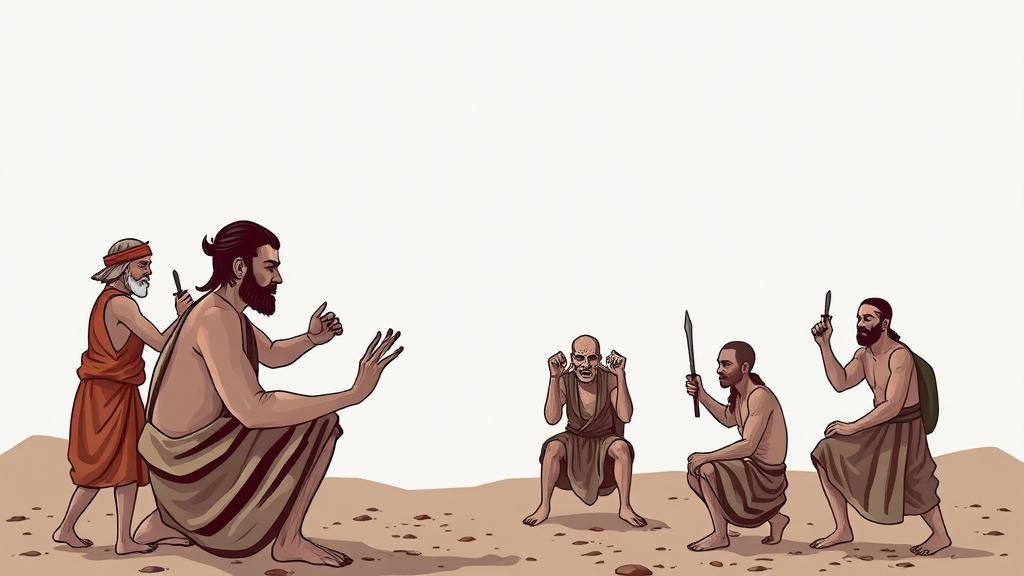The Cultural Significance of Curses as a Defensive Measure in Ancient Societies
The Cultural Significance of Curses as a Defensive Measure in Ancient Societies
The use of curses as a defensive mechanism is an intriguing aspect of ancient societies, reflecting deep-seated beliefs in the power of words and the spiritual realm. This article explores the cultural significance of curses, examining their roles as protective measures, their societal implications, and their enduring legacy through various civilizations.
1. Understanding Curses: Definitions and Contexts
A curse is traditionally defined as a solemn utterance intended to invoke a supernatural power to inflict harm or punishment. In ancient cultures, curses served as both personal and communal tools, utilized not only to curse an individuals adversaries but also to reinforce social norms and cohesion.
Curses varied in their nature, often categorized into two forms: spoken curses and written curses. Spoken curses were typically vocalized in significant social contexts, while written curses were inscribed on tablets, artifacts, or even the skin, aiming at long-lasting effects. For example, the discovery of defixiones, or curse tablets, in archaeological sites throughout the Roman Empire illustrates a prevalent practice where individuals sought to compel supernatural forces to intervene in their conflicts.
2. Historical Examples of Curses as Defensive Measures
Throughout history, curses have been employed as a defensive measure in various contexts. Ancient Egyptian society, for instance, utilized curses heavily in funerary practices. The “Curse of the Pharoah,†associated with the tombs of Egyptian rulers, was meant to deter grave robbers, warning them of dire consequences should they disturb the resting place of the deceased.
The Greek civilization also integrated curses into their legal and social frameworks. For example, the famous curse of Alcmaeonides, which declared that anyone who entered their home would suffer calamities, was employed strategically to defend against political enemies. Such curses underscored a belief in a cosmic justice that governed human interactions.
3. Curses and a Sense of Justice
Curses acted as an expression of personal justice in ancient societies. often represented a method for individuals to reclaim agency in situations where legal recourse was unavailable or inadequate. For example, in classical Roman culture, the calling upon the gods for vengeance through curses was a way to signal personal grievances when the formal justice system fell short.
The sociopolitical implications of curses indicate a collective understanding of power dynamics within communities. As a tool for empowerment, curses not only offered individuals a means of self-defense but also reinforced collective beliefs about morality, justice, and retribution.
4. Role of Curses in Spiritual Beliefs
Many ancient societies believed that curses were deeply rooted in spiritual practices. In Mesopotamia, for example, priests wielded curses as tools of divine retribution. Inscribing curses on clay tablets or performing rituals that invoked deities was common practice, establishing a link between the spiritual and tangible worlds.
Also, in African and Indigenous cultures, curses were often intertwined with animistic beliefs, where ancestors and spiritual forces were thought to intervene in human affairs. act of cursing was seen not only as a defensive measure but also as a means of maintaining harmony within the community by proscribing disruptive behavior.
5. Modern Reflections and Legacy of Curses
The legacy of curses continues to resonate in contemporary culture. The belief in curses manifests in various forms, from literary references to popular media portrayals. For example, the trope of the “mummys curse†highlights ongoing cultural fascinations with ancient practices and their perceived supernatural implications.
In todays world, the emotional and psychological dimensions of curses still play a role. For example, the concepts of “bad luck†or “hexing†often surface in discussions pertaining to personal conflicts. These reflections demonstrate how ancient practices inform modern social behaviors, indicating a persistence of these cultural beliefs in contemporary defensive measures.
6. Addressing Potential Questions and Misconceptions
A common misconception surrounding curses is that they are purely negative or malevolent. But, historical analysis demonstrates that curses also served protective functions, acting as deterrents against wrongdoings or injustices within communities. The cultural significance of curses should be viewed holistically, recognizing both their defensive and punitive elements.
Plus, individuals often wonder about the effectiveness of curses from an empirical standpoint. While modern science cannot substantiate supernatural claims, the psychological impact of believing in curses can lead to real consequences, influencing behavior and social interactions among individuals who subscribe to these beliefs.
7. Actionable Takeaways
- Explore literature and case studies surrounding curses to better understand their cultural implications and historical contexts.
- Consider the ways in which modern beliefs in curses reflect ancient practices, paying attention to cultural contexts.
- Engage in discussions about the psychological effects of curses, acknowledging the intersections between belief, agency, and community dynamics.
To wrap up, the cultural significance of curses as protective measures in ancient societies demonstrates a complex interplay of belief systems, norms, and justice. By recognizing their historical roots and societal roles, we gain insights into the enduring human struggle for agency and protection in the face of adversity.



